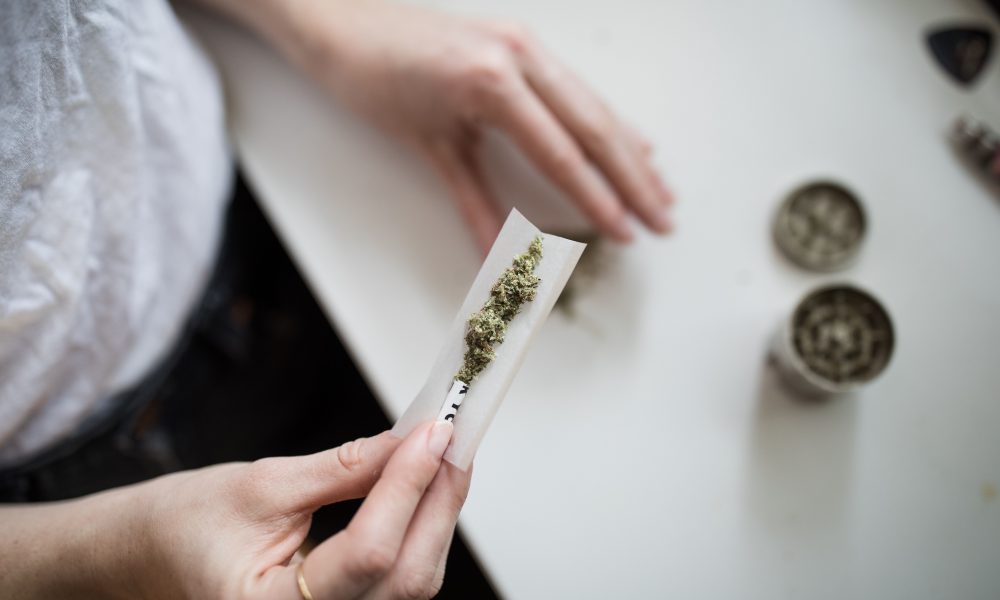Employers would be prohibited from discriminating against most job applicants for off-duty marijuana use or for testing positive for non-psychoactive THC metabolites under a new bill filed in the Washington State Senate.
The legislation, which was pre-filed for the 2023 session late last month, is one of several cannabis reform proposals that will be taken up at a hearing of the Senate Labor & Commerce Committee next week. The employment bill sponsor, Sen. Karen Keiser (D), chairs that panel.
The legislation says that the legalization of adult-use marijuana in the state in 2012 “created a disconnect between prospective employees’ legal activities and employers’ hiring practices,” adding that most drug tests only detect inactive THC metabolites that can be in a person’s system for weeks after use.
“Applicants are much less likely to test positive or be disqualified for the presence of alcohol on a preemployment screening test compared with cannabis, despite both being legally allowed controlled substances,” the text says. “The legislature intends to prevent restricting job opportunities based on an applicant’s past use of cannabis.”
—
Marijuana Moment is tracking hundreds of cannabis, psychedelics and drug policy bills in state legislatures and Congress this year. Patreon supporters pledging at least $25/month get access to our interactive maps, charts and hearing calendar so they don’t miss any developments.![]()
Learn more about our marijuana bill tracker and become a supporter on Patreon to get access.
—
The two-page bill would add a new section to state statute that would make it “unlawful for an employer to discriminate against a person in hiring if the discrimination” if they used cannabis “off the job and away from the workplace” or if they test positive for THC metabolites as part of employer-mandated drug screening.
There are some caveats to the proposal. For example, it wouldn’t preclude an employer from using drug tests that can detect active impairment from marijuana.
It also says that the reform wouldn’t affect “the rights or obligations of an employer to maintain a drug and alcohol free workplace, or any other rights or obligations of an employer required by federal law or regulation.”
Further, people working in building or construction trades, as well as those whose jobs would require federal background check or security clearance, wouldn’t be covered under the legislation.
The bill also says it does not “preempt state or federal laws requiring an applicant to be tested for controlled substances,” including those “requiring applicants to be tested, or the way they are tested, as a condition of employment, receiving federal funding or federal licensing-related benefits, or as required by a federal contract.”
The bill is one of three related to cannabis that will be considered in committee next week. The other two deal with marijuana industry equity issues and creating the framework for cannabis interstate commerce, pending a federal policy change.
Workplace drug testing policy is a topic that received considerable attention in state legislatures last year, including in California, where Gov. Gavin Newsom (D) signed legislation that prohibits most employers from discriminating against workers based on drug tests that show the presence of THC metabolites.
Back in July, Washington, D.C. Mayor Muriel Bowser (D) signed a bill that bans most workplaces from firing or otherwise punishing employees for marijuana use. The reform was designed to expand on a previous measure lawmakers approved to protect local government employees against workplace discrimination due to their use of medical cannabis.
Utah and Louisiana also enacted laws last year that provide employment protections for medical cannabis patients.
In September, New Jersey marijuana regulators approved guidance for employers that makes clear they cannot penalize workers based solely on positive drug tests for cannabis metabolites.
After New York enacted recreational legalization, the state Department of Labor also instituted new rules stipulating that employers can no longer drug test most workers for marijuana.
Despite prohibitionist arguments that marijuana legalization harms the workforce, a recent study published by the National Bureau of Economic Research (NBER) found that, if anything, the reform actually increases job opportunities.
Back in Washington State, lawmakers are again considering drug possession penalties and related issues this session.
Following a state Supreme Court decision in February 2021 that invalidated the state’s felony law against drug possession, lawmakers enacted a temporary criminalization policy that is set to expire on July 1. Some lawmakers want the state to formalize a policy of decriminalized possession, but others want to maintain criminalization.
Top Wisconsin GOP Senator Says His Party Is ‘Pretty Close’ To Supporting Medical Marijuana Legalization
Read the full article here

